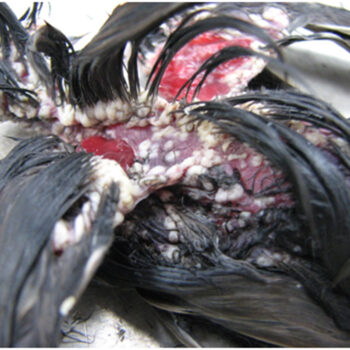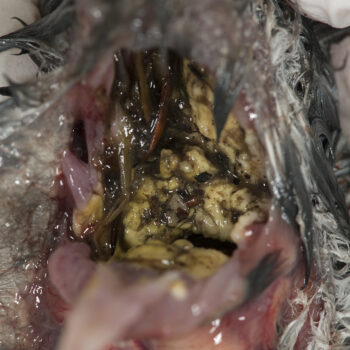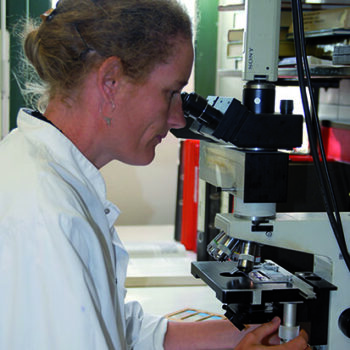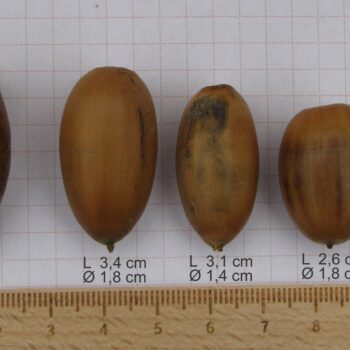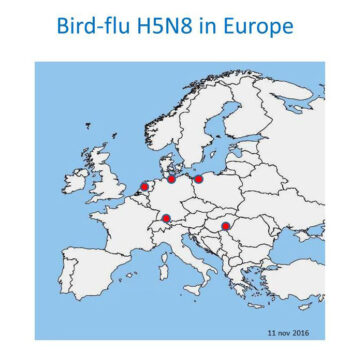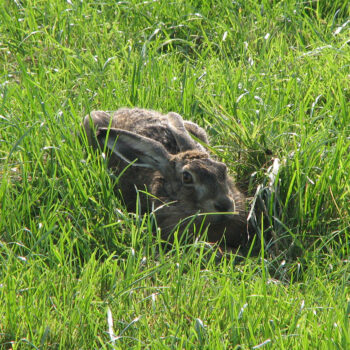Avian pox in a sparrow
At the beginning of January 2017 a sparrow (Passer domesticus) from the area around Soest was submitted to the DWHC. According to the individual who submitted the cadaver, before dying the bird had shown signs of sickness including fluffed up feathers, difficulty with flying, opening and closing the beak and
Read more



